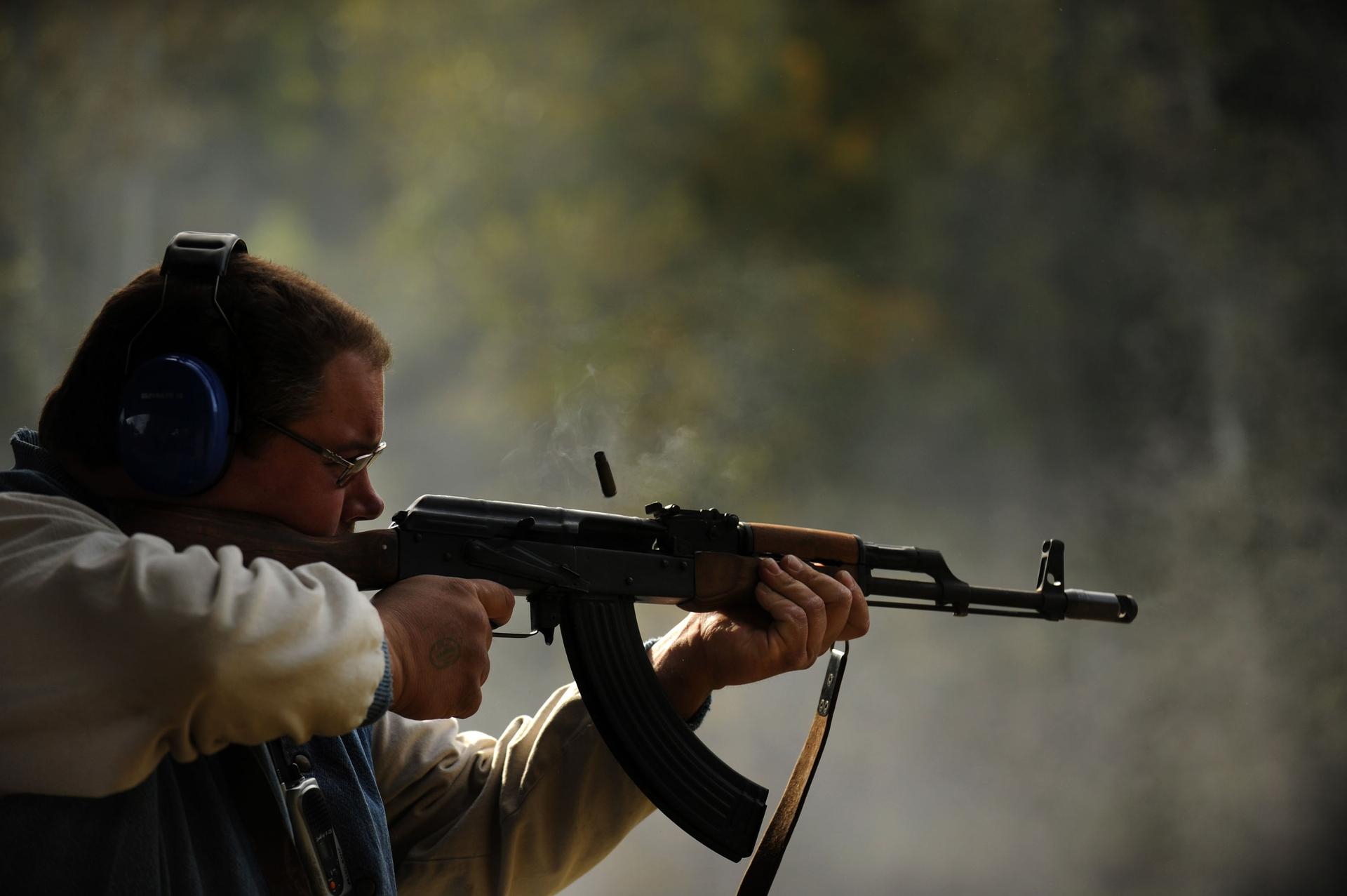Once a giant, Russia struggles in the small-arms market
Gun-happy Americans provide Russia’s small-arms manufacturers with their biggest export market.
MOSCOW, Russia — This may be the country that gave the world the AK-47 assault rifle, but if you believe Russia still dominates the global small-arms industry, you’d be wrong.
Moscow once funneled huge stockpiles of weapons to its allies during the Cold War, but fierce competition for thinning military sales has driven manufacturers such as Kalashnikov-maker Izhmash, Russia’s largest small-arms producer, to seek out new civilian markets.
Now it has its crosshairs on very different markets: Canada and Europe and the United States, the world’s largest market for civilian arms.
Izhmash says the United States currently provides its most lucrative market. Revenue this year is set to grow by 25 percent to $2.7 million.
Small arms are a tiny part of Russia’s total weapons sales, however. They account for less than 1 to 2 percent of total conventional arms sales, an amount Ruslan Pukhov, director of the Moscow-based Centre for Analysis of Strategies and Technologies, calls “peanuts money” for the defense sector.
Military sales make Moscow the world’s second largest arms exporter after the United States, with exports last year valued at $13 billion.
But although demand for heavy weapons remains hale, small-arms sales were partly decimated by the collapse of the Soviet Union, when former republics came into possession of colossal stockpiles that created a saturation of the market that continues today.
The production of cheap unlicensed knockoffs in China and elsewhere has helped undercut Russia’s foothold in the military arms market.
“No one is ordering anything from our Kalashnikov manufacturing companies,” said Igor Korotchenko, editor in chief of Russia’s National Defense Journal. “There are no contracts because there is no demand for this weapon. It’s much simpler to buy them on the black market or to buy copies that are made in countries like China, Bulgaria and so on.”
“If you can buy a pirate movie for 100 rubles at a kiosk,” he elaborated, “why would you spend 1,500 rubles getting the proper licensed version?”
Information about Russia’s small arms industry is patchy and shrouded in secrecy. A report by the Stockholm International Peace Research Institute, or SIPRI, suggests Russia was key to derailing consensus at a 2009 UN working group on increasing transparency in arms sales.
Many analysts are hesitant to estimate total revenue because only major deals are made public. Military expert Alexander Golts said the last such deal was with Venezuela in 2005, when Russia agreed to build a Kalashnikov assembly plant in the country. The factory began production this year.
Russia is generally known for disregarding politics and — according to its critics — ethics for its arms sales. Moscow says it sells arms exclusively to buyers who sign “end- user” guarantees promising not to resell weapons to third parties. But many believe Russian exporters know the documents will be violated.
At least one customer does reflect Moscow’s foreign policy, however: Syria. The Kremlin and Rosoboronexport, the Russian state arms export monopoly, have been criticized for continuing to funnel arms and military hardware despite the country's raging civil war.
A key strategic ally in the Middle East, Syria provides Russia with a military base and lucrative military contracts.
“It’s very clear that Russia is going to continue these contracts not for financial reasons,” Golts says.
Paul Holtom, director of SIPRI's arms transfers program, says Russia may also supply small amounts of arms to Central Asian countries, Africa and Latin America. Last year, Uruguay police were reported to have placed an order for 150 AK-103s and Vityaz and Bizon submachine guns in a deal worth more than $1.2 million.
But analysts say unannounced deals are far more important.
"The fact that I've not seen discussions on a big Kalashnikov deal in recent years suggests to me that it's not so much about them being worried about not releasing that information for the sake of secrecy,” Holtom said. “If they had something, we'd have read about it.”
For now, Izhmash's best bet is that Americans' apparently insatiable appetite for weapons will continue to grow.
The story you just read is accessible and free to all because thousands of listeners and readers contribute to our nonprofit newsroom. We go deep to bring you the human-centered international reporting that you know you can trust. To do this work and to do it well, we rely on the support of our listeners. If you appreciated our coverage this year, if there was a story that made you pause or a song that moved you, would you consider making a gift to sustain our work through 2024 and beyond?
